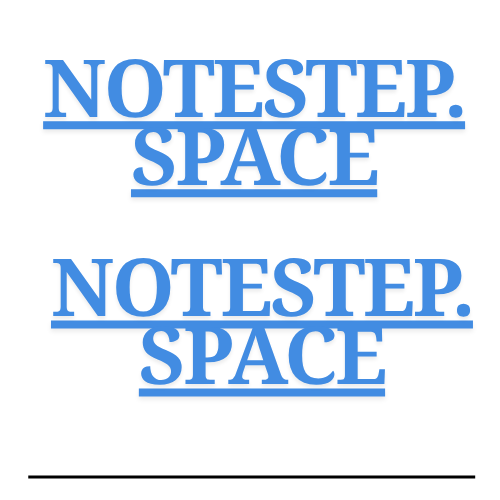The tech industry continues to evolve, and as we move further into the digital age, employers are seeking more than just basic coding knowledge. The ability to solve problems, handle data, and adapt quickly to new tools is just as important as technical know-how.
Whether you’re just starting your tech career or looking to advance, knowing what employers want in 2025 will help you stay ahead of the curve. Let’s dive into the most in-demand tech skills and how you can start learning them today.
1. Programming Skills Are Still King — But with Specialization
While general coding ability is valuable, employers are now looking for specialists. It’s not just about knowing how to code — it’s about knowing where to apply that code.
| Specialty | Language/Tools to Know |
|---|---|
| Web Development | JavaScript, React, HTML/CSS, Node.js |
| Data Science | Python, R, SQL, Pandas, Jupyter |
| Mobile Apps | Flutter, Kotlin, Swift |
| Backend Systems | Go, Rust, Java, C# |
Mastering one or two core technologies and showing real projects in that space is far more attractive than surface-level knowledge in five different ones.
2. Data Literacy and Analysis
Nearly every industry now relies on data to make decisions. That means the ability to collect, clean, interpret, and present data is crucial.
Key tools:
- SQL – the universal language for databases
- Python with Pandas/NumPy – data cleaning and analysis
- Tableau / Power BI – data visualization
- Excel – still widely used in business settings
Even non-technical roles increasingly require some form of data fluency. Understanding how to work with metrics, dashboards, and KPIs can give you a competitive edge.
3. Cybersecurity Awareness
With rising cyber threats, cybersecurity skills are no longer just for security teams. Even junior developers are expected to write secure code, handle sensitive data, and follow best practices.
In-demand knowledge includes:
- Understanding basic network security and encryption
- Knowing how to prevent SQL injections and XSS attacks
- Familiarity with OWASP Top 10
- Using multi-factor authentication and password hashing
Employers value individuals who take security seriously — even if they’re not in a dedicated security role.
4. Cloud Computing and DevOps
As businesses migrate to the cloud, the demand for people who understand AWS, Azure, or Google Cloud continues to grow.
Combined with DevOps skills, employers are looking for people who can:
- Deploy applications on cloud infrastructure
- Use CI/CD pipelines (Jenkins, GitHub Actions)
- Work with containers and orchestration (Docker, Kubernetes)
- Monitor uptime, performance, and scalability
Even if you’re not a DevOps engineer, understanding the basics of cloud architecture and deployment can set you apart.
5. Soft Skills That Tech Companies Prioritize
Tech isn’t just about machines — it’s about people solving problems with technology. That’s why soft skills are in high demand.
Employers in 2025 are actively seeking individuals who demonstrate:
- Problem-solving and critical thinking
- Effective communication (especially remote teams)
- Adaptability and self-learning
- Teamwork and collaboration
- Time management in agile workflows
Tech stacks change. Libraries get deprecated. Tools evolve. The ability to learn fast and work well with others is often more valuable than what you already know.
6. Version Control and Collaboration Tools
No matter the role, developers are expected to know how to use Git and GitHub. Employers want candidates who can:
- Collaborate using branches and pull requests
- Track changes efficiently
- Review and comment on code
- Maintain project documentation in repositories
Pair this with tools like Trello, Slack, Notion, and Jira, and you become a high-functioning team member from day one.
7. AI and Automation Fundamentals
You don’t need to be an AI researcher, but understanding the basics of automation and artificial intelligence is becoming expected in modern teams.
Skills that stand out:
- Using Python for automation scripts
- Working with APIs and automation tools like Zapier
- Understanding how AI models are trained and used (even at a conceptual level)
- Awareness of tools like ChatGPT, GitHub Copilot, Midjourney, etc.
AI is being integrated into nearly every platform — so familiarity is a must.
What Should You Focus On First?
Start by identifying your target career path and then learn the skills aligned with real job descriptions. Here’s a simple table:
| Career Goal | Skills to Prioritize |
|---|---|
| Web Developer | JavaScript, React, Git, CSS, REST APIs |
| Data Analyst | SQL, Python, Excel, Data Visualization |
| DevOps Engineer | AWS, Docker, CI/CD, Linux, Bash |
| Cybersecurity Analyst | Network basics, Python, Security tools |
Final Thoughts
The world of tech is shifting — but that’s exactly what makes it so exciting. Employers in 2025 want more than textbook knowledge. They want curious, agile learners who are willing to grow, collaborate, and adapt.
At notestep.space, we help you build both the technical and human skills needed to thrive in the real world of tech. Whether you’re learning to code, diving into data, or building your first portfolio, you’re not just gaining knowledge — you’re gaining career confidence.
Ready to become the kind of candidate tech companies fight for?
Your next step starts here.

